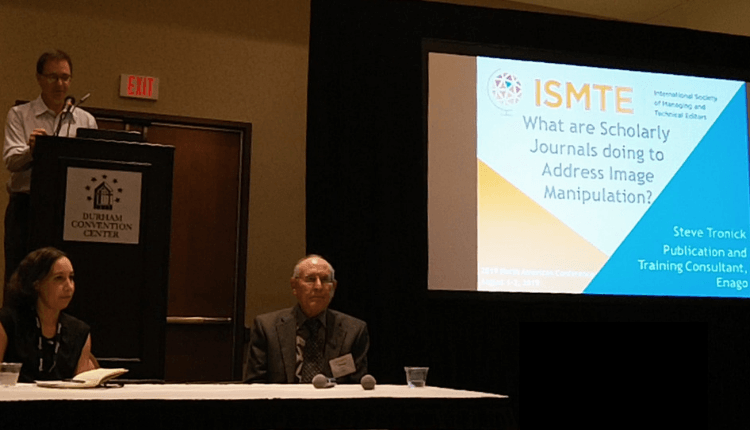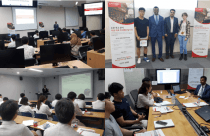Enago at ISMTE: A Successful Session on Risks and Remedies of Image Manipulations!

North Carolina, USA: Although recent advances in technology have helped researchers produce data better than ever, it has also significantly led to the rise of scientific fraud. Retractions have increased at an alarming rate due to the growth of research misconduct in the form of image manipulation. For maintaining the integrity of scholarly communication “What are Scholarly Journals doing to Combat Image Manipulations?” was addressed by Enago at the 2019 North American conference organized by The International Society of Managing and Technical Editors (ISMTE). Attracting researchers, editors, publishers, and other stakeholders from around the globe, ISMTE conferences acquaints its attendees with up-to-date information about the academic publishing industry.
Dr. Steven Tronick (Publication and Training Consultant, Enago) delivered the talk starting with an overview of what constitutes image manipulations and the difference between what is acceptable, inappropriate, and fraudulent. He discussed the strategies and tools used by journals to detect and combat image manipulations, which was further elaborated by Dr. Christina Bennett (Publications Director, Policy at the American Physiological Society) in the second part of the talk.
Dr. Tronick commented, “My research led me to conclude that the major scholarly journal publishers are engaged in robust efforts to address inappropriate and fraudulent image manipulation and have provided tools for authors to present their date with maximum transparency. My co-presenter, Christina Bennett gave an excellent presentation on the computer tools that are available to publishers to address image manipulation. Unfortunately, a small number of unethical investigators continue to publish fraudulent research and will likely continue to do so, despite our best efforts. I provided examples of cases that have had enormous adverse impacts on clinical and basic research. The advent of internet tools such as PubPeer and Retraction Watch will expose fraud, hopefully more quickly, although these services engage post-publication.”









